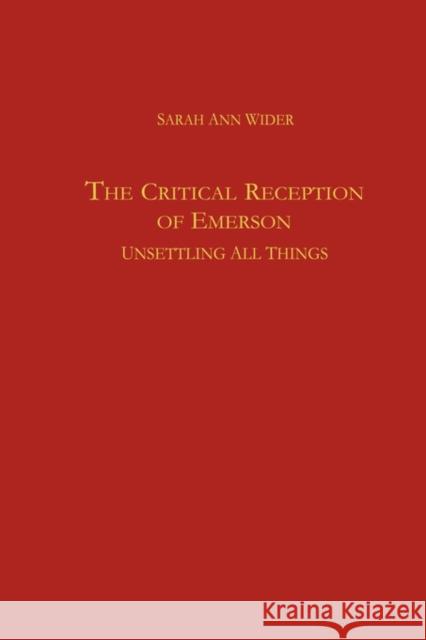The Critical Reception of Emerson: Unsettling All Things » książka
The Critical Reception of Emerson: Unsettling All Things
ISBN-13: 9781571131669 / Angielski / Twarda / 2000 / 249 str.
Since the 1820s, Ralph Waldo Emerson has provoked an unsettled response from his readers and contentiousness among critics. Critics still contest Emerson's position: Was he poet or philosopher? Did he liberate American literature or narrow it to a one-dimensional idea? Is his signature concept of self-reliance the most profound contribution to democratic individualism or the epitome of capitalism's impoverished thought? But by the mid 20th century the swing between condemnation and celebration of Emerson had given way to the familiar story of his bisected career, which provided a neat structure for viewing his life and work, and shaped our thought about him. Now that story is being challenged by the application of poststructuralism and textual editing, and with the publication of an amazing repertoire of editions, the Emerson canon is changing. The result is that Emerson criticism now faces a far more complex group of writings than before. One hundred and fifty years after Emerson styled himself an 'experimenter' who would 'unsettle all things, ' this new critical history illustrates the continuing, thought-provoking success of that experiment. Sarah Ann Wider is Professor of English at Colgate University in Hamilton, New York.











